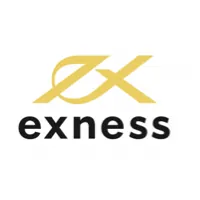CMA, Central Bank of Curaçao and Sint Maarten, CySEC +5 more
Forex brokers with Ghanaian Cedi accounts
The Ghanaian Cedi (GHS) is the official currency of Ghana, a country located in West Africa. It was first introduced in 2007, following a revaluation that removed four zeros from the previous currency. The central bank of Ghana, known as the Bank of Ghana, is responsible for issuing and regulating the currency, aiming to maintain stable inflation rates.
While the Ghanaian Cedi is available for trading on Forex and CFD (Contract for Difference) platforms, it's worth noting that only a limited number of brokers allow clients to open live accounts in GHS. Opening an account denominated in your local currency can be advantageous, as it saves you fees associated with currency conversions.
When considering investments, it is important to assess the stability of the currency you're investing in. Ensuring that the currency will not depreciate significantly due to inflation is crucial. Monitoring economic indicators, political stability, and central bank policies can provide insights into the potential stability of the Ghanaian Cedi.
The Ghanaian Cedi (GHS) is a free-floating currency, which means that its value is determined by the forces of supply and demand in the foreign exchange (FX) market. However, it's important to note that GHS is not considered a commodity currency, as its value is not directly linked to the price of specific commodities.
Ghana has experienced a historically high inflation rate. Since the introduction of the Ghanaian Cedi in 2007, the country has faced an average annual inflation rate of over 7.1%. In June 2023, the inflation rate reached 42.5% compared to the same month of the previous year. These figures indicate that the Ghanaian Cedi has exhibited instability, and trading accounts denominated in GHS can carry a significant level of risk.
Considering the high inflation rates and potential volatility of the Ghanaian Cedi, it is important for individuals and investors to carefully assess the risks involved before engaging in trading or investment activities with the currency. Staying informed about economic indicators, inflation trends, and central bank policies can help individuals make more informed decisions regarding the Ghanaian Cedi.
